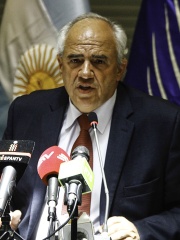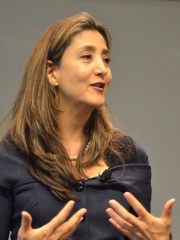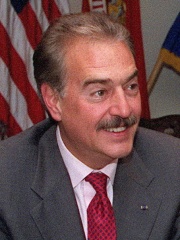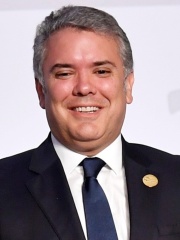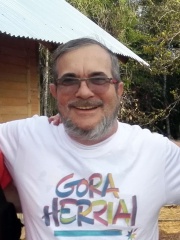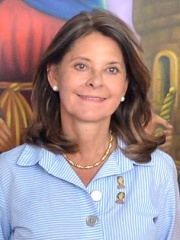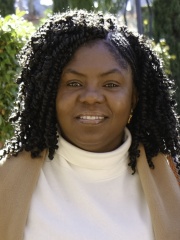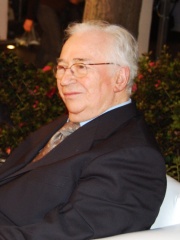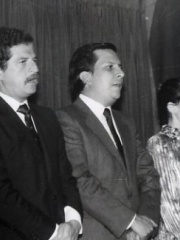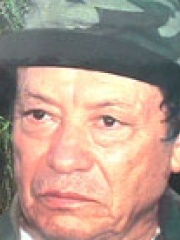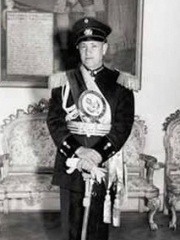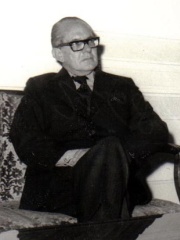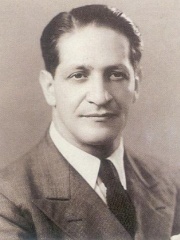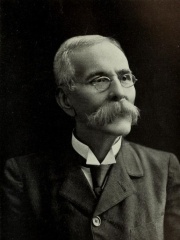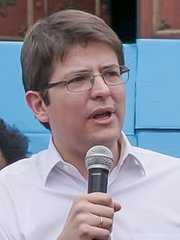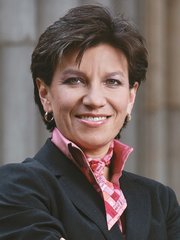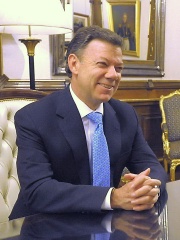
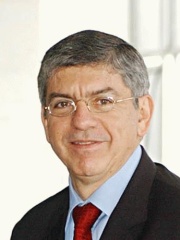
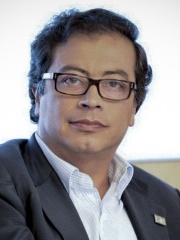
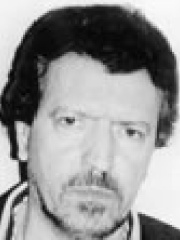
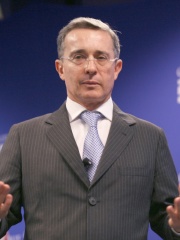
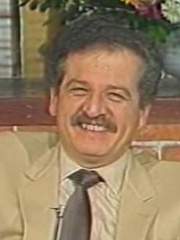
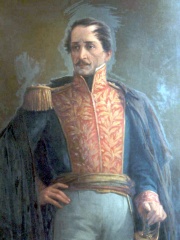
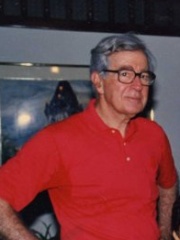
The Most Famous
POLITICIANS from Colombia
This page contains a list of the greatest Colombian Politicians. The pantheon dataset contains 19,576 Politicians, 61 of which were born in Colombia. This makes Colombia the birth place of the 58th most number of Politicians behind Morocco, and Uruguay.
Top 10
The following people are considered by Pantheon to be the top 10 most legendary Colombian Politicians of all time. This list of famous Colombian Politicians is sorted by HPI (Historical Popularity Index), a metric that aggregates information on a biography's online popularity. Visit the rankings page to view the entire list of Colombian Politicians.

1. Juan Manuel Santos (b. 1951)
With an HPI of 70.99, Juan Manuel Santos is the most famous Colombian Politician. His biography has been translated into 91 different languages on wikipedia.
Juan Manuel Santos Calderón ([ˈxwam maˈnwel ˈsantos kaldeˈɾon]; born 10 August 1951) is a Colombian politician who was the President of Colombia from 2010 to 2018. He was the sole recipient of the 2016 Nobel Peace Prize. An economist by training and a journalist by trade, Santos is a member of the wealthy and influential Santos family, who from 1913 to 2007 were the majority shareholders of El Tiempo, Colombia's newspaper of record. In 1991, Santos was appointed by President César Gaviria Trujillo as Colombia's first Minister of Foreign Trade. In 2000, he was appointed by President Andrés Pastrana Arango as the 64th Minister of Finance and Public Credit. Santos rose to prominence during the administration of President Álvaro Uribe Vélez, who was elected in 2002. In 2005, Santos co-founded and led the Social Party of National Unity (Party of the U), a liberal-conservative party coalition that backed the policies of President Uribe, successfully supporting his attempt to seek a constitutional reform to be able to run for a second term. In 2006, after Uribe's re-election, when the Party of the U won a majority of seats in the two chambers of Congress, Santos was appointed as Minister of National Defence, and continued defending the security policies of President Uribe, taking a strong and forceful stance against FARC and the other guerrilla groups operating in Colombia. His time at the Ministry of Defense was tarnished by the "False positives" scandal, the executions of thousands of civilians that the army passed off as guerrillas killed in combat. In 2010, Santos won the presidential election as the protégé of Uribe. Some months later, Uribe became his strongest opponent, and also founded three years later the opposition party Democratic Center. This rivalry determined both Santos' unpopularity and his near-missed defeat during the 2014 Colombian presidential election against Uribe's protégé Óscar Iván Zuluaga. On 7 October 2016, Santos was announced as recipient of the Nobel Peace Prize for his efforts negotiating a peace treaty with the FARC-guerrilla in the country, despite his defeat in the referendum held over the deal, where the "No" campaign led by Uribe's Democratic Center won narrowly. The Colombian government and the FARC signed a revised peace deal on 24 November and sent it to Congress for ratification instead of conducting a second referendum. Both houses of Congress ratified the revised peace accord on 29–30 November 2016, marking an end to the conflict. The treaty brought deep divisions and polarization in the country, which questions its legitimacy. Santos has been named as one of Time's 100 most influential people. Santos left office with one of the lowest levels of popular approval ever, and his successor was Uribe's new protégé, Iván Duque, a moderate critic of Santos' peace treaty with the FARC guerillas.

2. César Gaviria (b. 1947)
With an HPI of 69.37, César Gaviria is the 2nd most famous Colombian Politician. His biography has been translated into 39 different languages.
César Augusto Gaviria Trujillo (Spanish: [ˈsesaɾ awˈɣusto ɣaˈβiɾja tɾuˈxiʝo] ; born 31 March 1947) is a Colombian economist and politician who served as the President of Colombia from 1990 to 1994, Secretary General of the Organization of American States from 1994 to 2004 and National Director of the Colombian Liberal Party from 2005 to 2009. During his tenure as president, he summoned the Constituent Assembly of Colombia that enacted the Constitution of 1991.

3. Gustavo Petro (b. 1960)
With an HPI of 67.91, Gustavo Petro is the 3rd most famous Colombian Politician. His biography has been translated into 55 different languages.
Gustavo Francisco Petro Urrego (born 19 April 1960) is a Colombian politician and economist who has served as the 35th president of Colombia since 2022. Upon inauguration, he became the first left-wing president in the recent history of Colombia. At 17 years old, Petro joined the guerrilla group 19th of April Movement (M-19). Seventeen years later it evolved into the M-19 Democratic Alliance, a political party. Petro also served as a councilman in Zipaquirá. He was arrested in 1985 by the army for his affiliation with M-19. After the peace process between the Colombian government and the M-19, he was released and then elected to the Chamber of Representatives in the 1991 Colombian parliamentary election. Some years later, he was elected to the Colombian Senate as a member of the Alternative Democratic Pole (PDA) party following the 2006 Colombian parliamentary election, where he secured the second-largest vote. In 2009, he resigned his Senate seat to run in the 2010 Colombian presidential election, finishing fourth. He was elected mayor of Bogotá in 2011, and held the post until 2015. Due to ideological disagreements with the leaders of the PDA, he founded the Humane Colombia movement to compete for the mayoralty of Bogotá. On 30 October 2011, he was elected mayor in the local elections, a position he assumed on 1 January 2012. In the first round of the 2018 Colombian presidential election, he came second with over 25% of the votes on 27 May, and lost in the run-off election on 17 June. He defeated Rodolfo Hernández Suárez in the second round of the 2022 presidential election on 19 June.

4. Miguel Rodríguez Orejuela (b. 1943)
With an HPI of 66.64, Miguel Rodríguez Orejuela is the 4th most famous Colombian Politician. His biography has been translated into 18 different languages.
Miguel Ángel Rodríguez Orejuela (born August 15, 1943) is a convicted Colombian drug lord, formerly one of the leaders of the Cali Cartel, based in the city of Cali. He is the younger brother of Gilberto Rodríguez Orejuela. He married Miss Colombia 1974, Martha Lucía Echeverry.
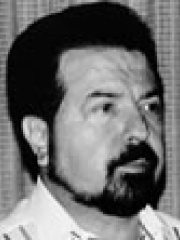
5. Gilberto Rodríguez Orejuela (1939 - 2022)
With an HPI of 66.20, Gilberto Rodríguez Orejuela is the 5th most famous Colombian Politician. His biography has been translated into 15 different languages.
Gilberto Rodríguez Orejuela (30 January 1939 – 31 May 2022) was a Colombian drug lord and one of the leaders of the Cali Cartel. Orejuela formed the cartel with his brother, Miguel Rodríguez Orejuela, José Santacruz Londoño, and Hélmer Herrera. The cartel emerged to prominence in the early 1990s, and was estimated to control about 80% of the American and 90% of the European cocaine markets in the mid-1990s. Rodríguez Orejuela was captured after a 1995 police campaign by Colombian authorities and sentenced to 15 years in prison. He obtained early release in 2002, and was re-arrested in 2003, after which he was extradited to the United States. There, he was sentenced to 30 years in prison, where he died in 2022.

6. Álvaro Uribe (b. 1952)
With an HPI of 66.04, Álvaro Uribe is the 6th most famous Colombian Politician. His biography has been translated into 53 different languages.
Álvaro Uribe Vélez (born 4 July 1952) is a Colombian politician who served as the 32nd President of Colombia from the 7th of August, 2002 to the 7th of August, 2010. He is member and leader of the conservative political party Democratic Center. Uribe started his political career in his home department of Antioquia. He held offices in the Public Enterprises of Medellín and in the Ministry of Labor and was the director of the Special Administrative Unit of Civil Aeronautics (1980–1982). He became the Mayor of Medellín in October 1982. He was a senator between 1986 and 1994 and finally the Governor of Antioquia between 1995 and 1997 before being elected President of Colombia in 2002. Following his 2002 election, Uribe led an all-out military offensive against leftist guerrilla groups such as the FARC and the ELN with funding and backing from the Clinton and Bush administrations in the form of a US$2.8 billion direct foreign aid package called "Plan Colombia". He also led a controversial effort to demobilize the right-wing paramilitary group known as the AUC. All of these groups were part of the Colombian Armed Conflict. His role in the conflict was accompanied by large-scale alleged executions: thousands of civilians were killed by the Colombian army, as part of the "false positives" scandal, with almost total impunity. Their deaths are being investigated by the United Nations. In August 2010, Uribe was appointed vice-chairman of the UN panel investigating the Gaza flotilla raid. In 2012 Uribe and a group of political allies founded the right-wing Democratic Center movement to contest the 2014 national elections. He was elected senator in the 2014 parliamentary election and took office in July 2014. Uribe was critical of his successor Juan Manuel Santos's peace talks with the FARC guerrillas. In August 2020, the Supreme Court of Justice of Colombia ordered his arrest as part of an investigation into bribery and witness tampering. The case went to the Attorney General, after which Uribe resigned from his Senate seat. He was convicted on 28 July 2025. A number of his political opponents have claimed for years that Uribe should be prosecuted, alleging he has ties with paramilitarism.

7. Luis Carlos Galán (1943 - 1989)
With an HPI of 65.17, Luis Carlos Galán is the 7th most famous Colombian Politician. His biography has been translated into 19 different languages.
Luis Carlos Galán Sarmiento (29 September 1943 – 18 August 1989) was a Colombian liberal politician and journalist who ran for the Presidency of Colombia on two occasions, the first time for the political movement New Liberalism that he founded in 1979. The movement was an offspring of the mainstream Colombian Liberal Party, and with mediation of former Liberal president Julio César Turbay Ayala, Galán returned to the Liberal party in 1989 and sought the nomination for the 1990 presidential election, but was assassinated before the vote took place. Galán declared himself an enemy of the drug cartels and the influence of the mafia in Colombian politics, in this case the main drug cartel being the Medellin Cartel led by Pablo Escobar and who unsuccessfully tried to become a member of the New Liberalism Movement in his bid to become a member of the Colombian House of Representatives. Galán denounced Pablo Escobar in a public rally, and supported the extradition treaty with the U.S, contrary to the wishes of the Colombian cartels that feared extradition to the U.S. After receiving several death threats, on 18 August 1989, Galán was shot and killed by hitmen hired by the drug cartels of Pablo Escobar during a campaign rally in the town of Soacha, Cundinamarca. At the time, he was comfortably leading the polls with 60 percent favourable ratings for the forthcoming 1990 presidential election. While the investigation into his assassination remains unsolved, Galan's assassination was a crucial factor in the downfall of the Medellin Cartel a few years later.

8. Francisco de Paula Santander (1792 - 1840)
With an HPI of 64.25, Francisco de Paula Santander is the 8th most famous Colombian Politician. His biography has been translated into 33 different languages.
Francisco José de Paula Santander y Omaña (April 2, 1792 – May 6, 1840) was a Neogranadine military and political leader who served as Vice-President of Gran Colombia between 1819 and 1826, and was later elected by Congress as the President of the Republic of New Granada between 1832 and 1837. Santander played a pivotal role in the Colombian War of Independence being one of the main leaders of the Patriot forces and helped lead the Patriot Army alongside Simón Bolívar to victory. He's often credited with creating the legal foundations for democracy in Colombia, as well as creating the country's first system of public education. For these reasons he is considered a National Hero in Colombia and has thus commonly been known as "The Man of the Laws" ("El Hombre de las Leyes") as well as the "Organizer of Victory" ("El Organizador de la Victoria"). Francisco de Paula Santander was born into a wealthy criollo family in Villa del Rosario, in the Viceroyalty of New Granada and spent most of his formative years there. In 1805 he left his home to continue his education in the Viceregal capital of Santa Fe de Bogotá, while finishing his studies on July 20, 1810 he joined in the revolutionary fervor that would be movement for New Granadan Independence. At the age of 18 Santander abandoned his studies to begin his military career fighting for the Patriot cause against the Royalists initially with the Centralists but switched sides and became an officer in the army of the Federalist United Provinces of New Granada. In 1813 he would be wounded and captured during the civil war between the Federalists and the Centralists, but was released to serve under Manuel del Castillo y Rada and Simón Bolívar in the defense of the Cucuta Valley from the Royalists. For the next 3 years Santander defended the valley from Royalist Incursion until he was defeated at the Battle of Cachirí during the Spanish Reconquest of New Granada. With the collapse of the first republic, he fled to the Casanare Province and joined forces with Venezuelan Patriot forces there first under the command of José Antonio Páez, and then joined Bolívar's forces in Guayana in 1817. Under the command of Bolívar during the 1819 Campaign to Liberate New Granada, Santander led his troops valiantly at the battles of Paya, Gameza, Vargas Swamp, and at Boyacá liberating his homeland from Spanish Rule. With the creation of Gran Colombia in December 1819, Santander was initially chosen as Vice-President of Cundinamarca, in 1821 at the congress of Cúcuta he was elected as Vice-President of Gran Colombia with Bolívar as President. For the next 6 years, with Bolívar away on campaign, Santander became acting president of the new nation, using his administrative skills to create the foundations for the new republic. In 1827 political differences between him and Bolívar led to a rupture in their relationship, culminating in 1828 when Bolívar accused of him of having masterminded a plot to assassinate him. While no evidence was ever found to corroborate this, Santander was sentenced to the death however this punishment was changed and Santander was instead stripped of his titles and positions and sent into exile where he would spend next 4 years in Europe and in the United States. After the dissolution of Gran Colombia, in 1832 the newly established congress of the Republic of New Granada elected him as President where he served his term from 1832 to 1837. After the end of his presidency he was elected as a representative for Bogotá in the chamber of representatives, however his health began to rapidly decline resulting in his death on May 6, 1840.

9. Virgilio Barco Vargas (1921 - 1997)
With an HPI of 64.21, Virgilio Barco Vargas is the 9th most famous Colombian Politician. His biography has been translated into 33 different languages.
Virgilio Barco Vargas (17 September 1921 – 20 May 1997) was a Colombian politician and civil engineer who served as the 28th President of Colombia serving from 7 August 1986 to 7 August 1990.
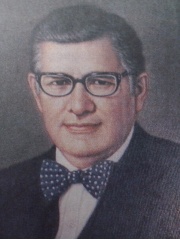
10. Julio César Turbay Ayala (1916 - 2005)
With an HPI of 64.15, Julio César Turbay Ayala is the 10th most famous Colombian Politician. His biography has been translated into 29 different languages.
Julio César Turbay Ayala (18 June 1916 – 13 September 2005) was a Colombian lawyer and politician who served as the 26th president of Colombia from 1978 to 1982. He also held the positions of Foreign Minister and Ambassador to the United States.
People
Pantheon has 61 people classified as Colombian politicians born between 1765 and 1986. Of these 61, 15 (24.59%) of them are still alive today. The most famous living Colombian politicians include Juan Manuel Santos, César Gaviria, and Gustavo Petro. The most famous deceased Colombian politicians include Gilberto Rodríguez Orejuela, Luis Carlos Galán, and Francisco de Paula Santander. As of April 2024, 3 new Colombian politicians have been added to Pantheon including Miguel Uribe Turbay, Claudia López, and Natalia Sánchez.
Living Colombian Politicians
Go to all RankingsJuan Manuel Santos
1951 - Present
HPI: 70.99
César Gaviria
1947 - Present
HPI: 69.37
Gustavo Petro
1960 - Present
HPI: 67.91
Miguel Rodríguez Orejuela
1943 - Present
HPI: 66.64
Álvaro Uribe
1952 - Present
HPI: 66.04
Ernesto Samper
1950 - Present
HPI: 63.22
Íngrid Betancourt
1961 - Present
HPI: 62.77
Andrés Pastrana Arango
1954 - Present
HPI: 60.76
Iván Duque Márquez
1976 - Present
HPI: 55.23
Timoleón Jiménez
1959 - Present
HPI: 55.14
Marta Lucía Ramírez
1954 - Present
HPI: 53.40
Francia Márquez
1981 - Present
HPI: 51.27
Deceased Colombian Politicians
Go to all RankingsGilberto Rodríguez Orejuela
1939 - 2022
HPI: 66.20
Luis Carlos Galán
1943 - 1989
HPI: 65.17
Francisco de Paula Santander
1792 - 1840
HPI: 64.25
Virgilio Barco Vargas
1921 - 1997
HPI: 64.21
Julio César Turbay Ayala
1916 - 2005
HPI: 64.15
Belisario Betancur
1923 - 2018
HPI: 63.88
Rodrigo Lara
1946 - 1984
HPI: 63.06
Manuel Marulanda
1930 - 2008
HPI: 62.87
Gustavo Rojas Pinilla
1900 - 1975
HPI: 62.19
Alfonso López Michelsen
1913 - 2007
HPI: 61.17
Jorge Eliécer Gaitán
1903 - 1948
HPI: 60.99
Manuel Amador Guerrero
1833 - 1909
HPI: 60.64
Newly Added Colombian Politicians (2025)
Go to all RankingsMiguel Uribe Turbay
1986 - 2025
HPI: 55.54
Claudia López
1970 - Present
HPI: 48.46
Natalia Sánchez
1983 - Present
HPI: 34.42
Overlapping Lives
Which Politicians were alive at the same time? This visualization shows the lifespans of the 25 most globally memorable Politicians since 1700.

